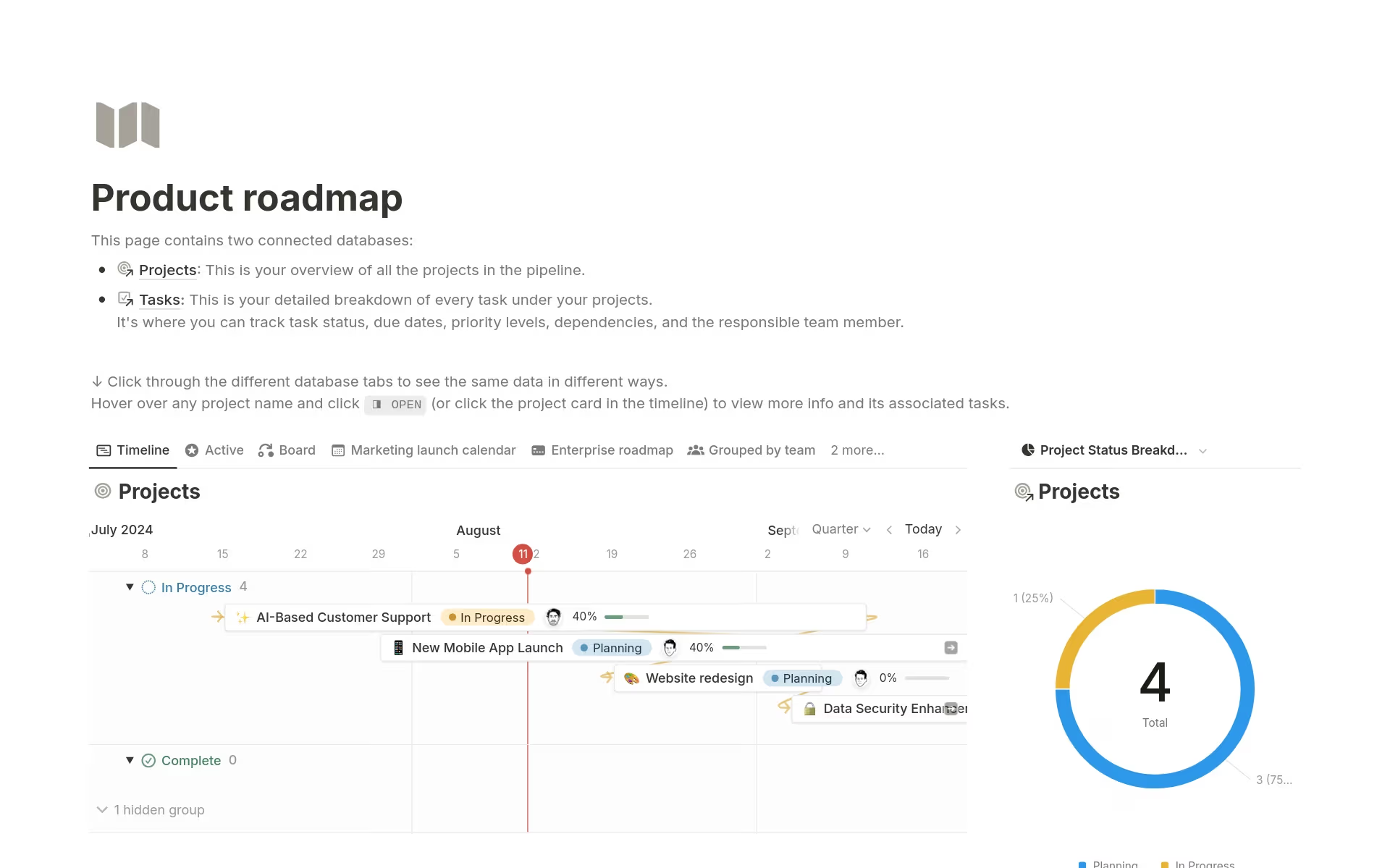A Product Roadmap is a dynamic layout that outlines the vision, direction, priorities, and progress of a product over time. It serves as a guiding strategic document as well as a plan for executing the product strategy. A Product Roadmap template in Notion can streamline the process of creating this document, ensuring that product managers have a clear, organized way to present and update their product's journey, milestones, and goals.
Before embarking on the development of your own Product Roadmap, consider exploring these Product Roadmap templates to simplify the process.
What Should Product Roadmap Templates Include?
Choosing the right product roadmap template can significantly streamline your strategic planning and communication. Here's what to look for in an effective template:
Clear Milestones: The template should clearly outline key milestones. This helps in tracking progress against objectives and expected timelines.
Flexible Time Frames: Opt for a template that allows for both short-term and long-term planning. Flexibility in setting time frames is crucial for adapting to changes.
Integration Capabilities: A good template should integrate seamlessly with other tools used by your team. This ensures that updates are centralized and communication is streamlined.
Visual Appeal: A visually appealing template not only makes the roadmap easier to understand but also engages stakeholders more effectively.
Ultimately, the best template is one that fits your team's specific needs and enhances your strategic planning process.
What Should Product Roadmap Templates Avoid?
Choosing the right product roadmap template is crucial for effective product management. It's important to know what features can hinder rather than help your planning process.
Overly Complex Features: Avoid templates that include too many intricate features which can complicate the roadmap and obscure key objectives.
Fixed Time Frames: Steer clear of templates that rigidly define time frames, as flexibility is often needed to accommodate changes in scope or priorities.
Generic Strategies: Templates that promote one-size-fits-all strategies should be avoided. They often fail to address the specific needs of your product or market.
Selecting a template that avoids these pitfalls will ensure a clearer, more adaptable approach to managing your product's lifecycle.













